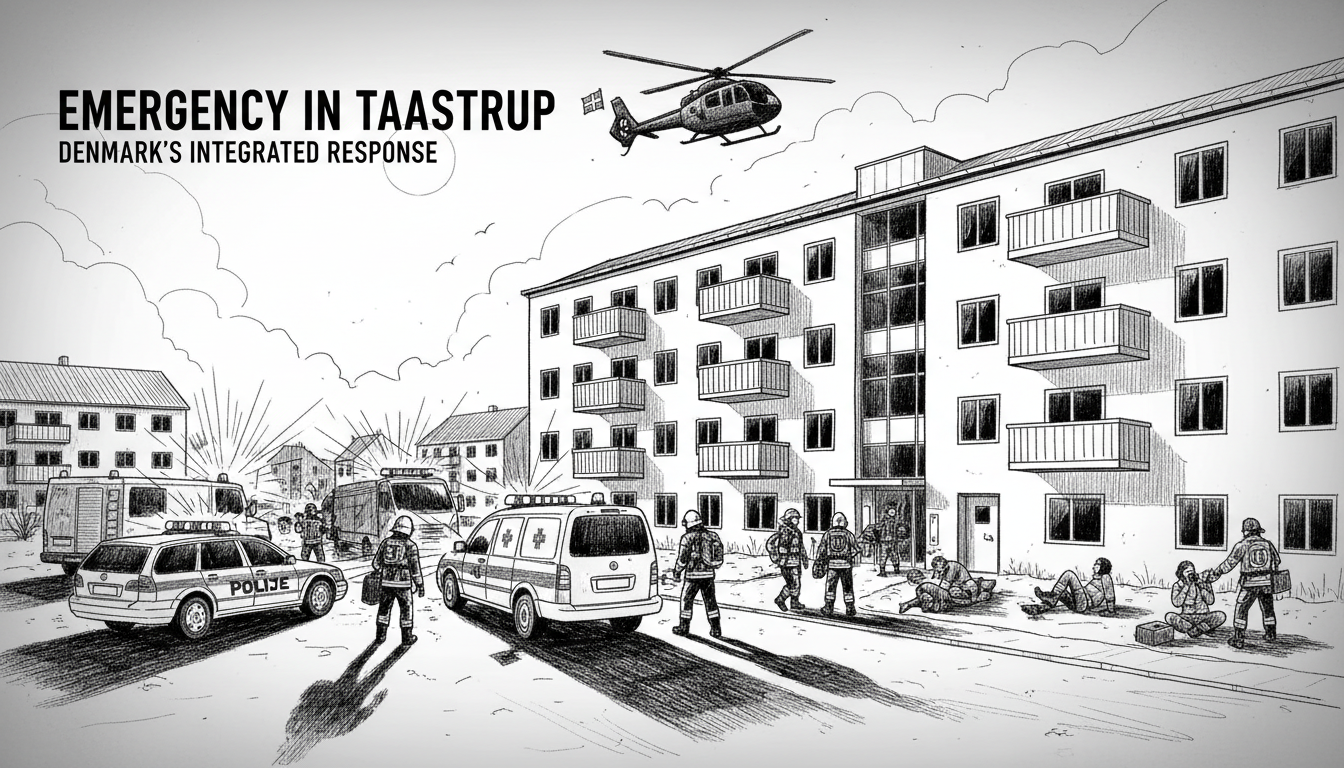Emergency services descended upon a residential street in Taastrup as seven people required medical attention under mysterious circumstances. Police, ambulance crews, and fire department units responded to Sankt Mikkels Alle following emergency calls about multiple individuals falling ill. The coordinated response reflects Denmark's integrated emergency protocols that mobilize multiple services simultaneously.
Authorities confirmed the incident but could not immediately determine what caused the medical emergency. A police supervisor stated they received multiple calls about people experiencing sudden illness in the area. The rapid deployment of diverse emergency units demonstrates Copenhagen's comprehensive approach to public safety incidents.
This type of multi-agency response is characteristic of Danish emergency management. Municipalities across Denmark maintain integrated response systems where police, medical, and fire services coordinate seamlessly. The welfare system's emphasis on preventive public health measures makes such incidents particularly noteworthy when they occur.
Integration challenges in suburban areas like Taastrup sometimes create complex scenarios for emergency responders. Cultural and language barriers can occasionally complicate initial assessments during health emergencies. Denmark's social policy emphasizes equal access to emergency services regardless of neighborhood demographics.
The Danish welfare system invests heavily in community health infrastructure. Local social centers typically serve as first points of contact for non-emergency health concerns. When incidents escalate to require multiple emergency units, they trigger specialized protocols designed for complex situations.
Copenhagen integration efforts include ensuring all residents understand how to access emergency services. Municipal programs educate newcomers about Denmark's healthcare system and emergency response procedures. Such incidents test both the technical response capabilities and the community's understanding of safety systems.
What does this mean for Denmark's social policy approach? The immediate medical response appears efficient, but the underlying causes matter for preventive strategies. Danish municipalities track patterns in emergency calls to identify potential public health concerns before they escalate. This data informs both local health initiatives and broader integration policies.
The incident raises questions about community health monitoring in suburban areas. While Danish society maintains strong healthcare infrastructure, unexpected health emergencies can reveal gaps in community awareness or preventive care. The welfare system's strength lies in its ability to respond while also analyzing incidents for systemic improvements.
Emergency responses in residential areas typically involve follow-up investigations by municipal health authorities. They examine environmental factors, potential contaminants, or other community health considerations. This comprehensive approach reflects Denmark's commitment to both immediate care and long-term public health planning.
International residents should understand that Denmark's emergency response system operates with high coordination. The country's immigration policy includes orientation about healthcare access and emergency procedures. Such incidents demonstrate the system's capacity while reminding all residents to familiarize themselves with local safety resources.

